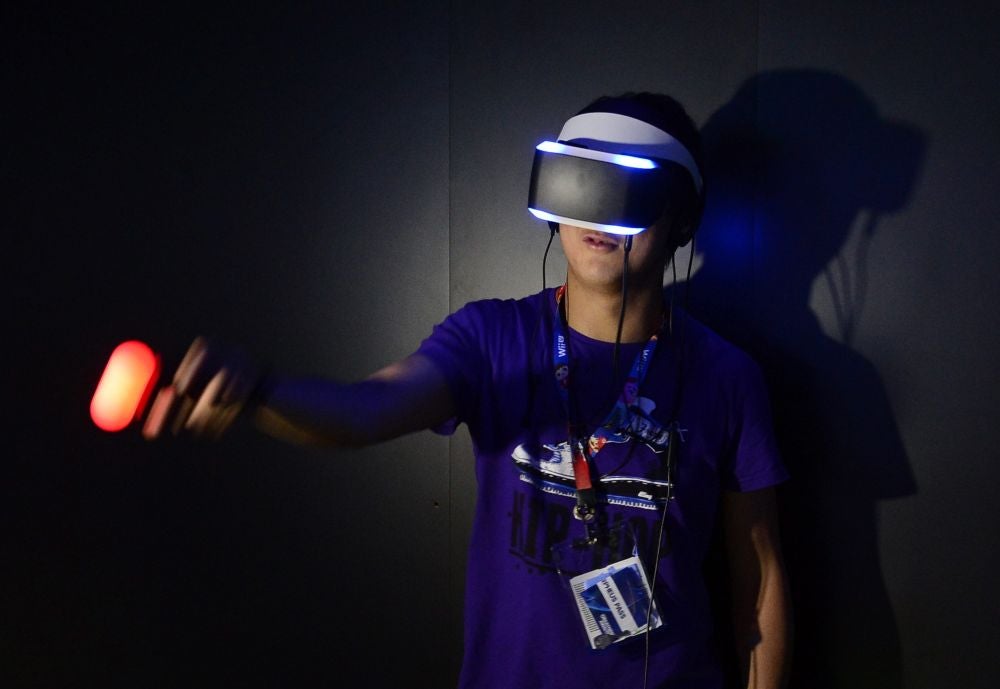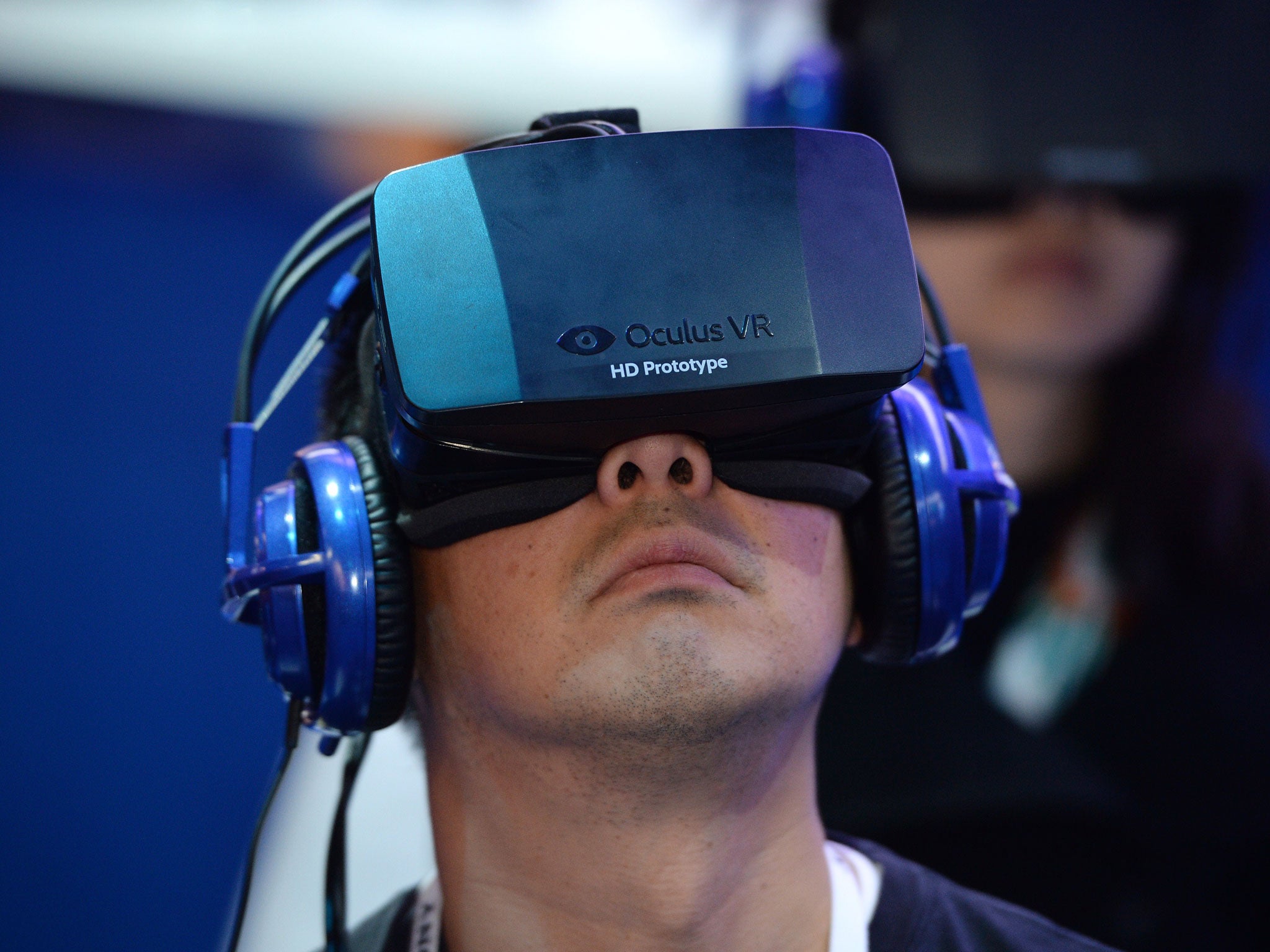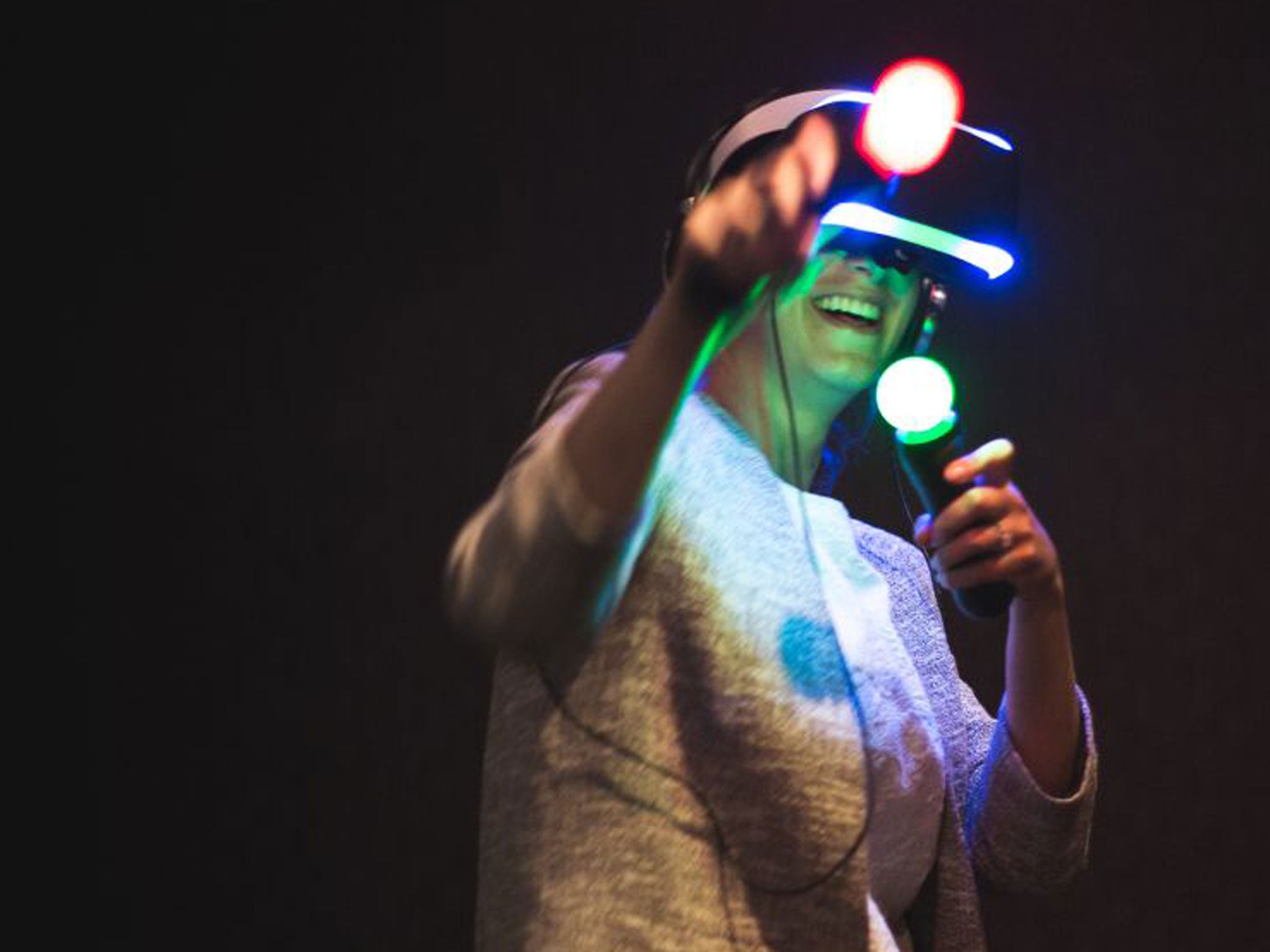Virtual reality: The future is here, and it's game-changing
Everyone exhibiting at E3 wants to be the next big thing, and everyone else wants to be among the first to play it

The preconception that video games are only for boys, geeks, or kids still exists in some quarters. But an insight into where the industry is heading suggests it will soon be banished entirely.
The gaming market is the fastest-growing entertainment sector in the world, worth $75.5bn last year, and expected to be worth more than $100bn by 2017. The biggest event in the video-game calendar is the Electronic Entertainment Expo (E3), where publishers and developers gather to reveal the most anticipated – and surprise – announcements of the year.
The industry-only event welcomed nearly 50,000 people this year for a show that requires more bandwidth than most US cities need in a year, and for the first time, gamers around the world could tune into video-streaming service Twitch to watch the shows – and millions did.
The main events take place in the LA Convention Center across a space that could fill nearly eight US football fields. E3 is bustling; everyone exhibiting wants to be the next big thing, and everyone else wants to be among the first to play it. But of the hundreds of games shown at the event, the main competition is often considered to be between Sony and Microsoft. Last year, it was all about the move into “next-gen” gaming. It was just five months before the release of their new consoles, the PlayStation 4 (PS4) and Xbox One.
With an eight-year gap since Microsoft released the Xbox 360, and seven since the PlayStation 3, both selling more than 80 million units worldwide, the companies released their new consoles within weeks of each other last November. Since, Sony has taken the lead with seven million units sold worldwide as of May, compared to about five million units of the Xbox One, but the battle is not even nearly over.
As the focus last year was undoubtedly on the hardware, this time it was all about software. The console can be as fancy and fiddly as you like, but unless it offers games fans want to play, nobody’s going to invest. Microsoft’s and Sony’s presentations both took place at the beginning of the three-day gaming convention – and they really went for it. Thousands of people registered for places in a huge, packed room, and the suspense built waiting for the delayed announcements to begin. Microsoft gave everyone a light-up Xbox bracelet on entry (which, rather cleverly continued to light up throughout the day each time it was tapped – including during the PlayStation presentation). Sony had a huge outside area with food stands and bars – it felt like a music festival.

Microsoft crammed in game after game, beginning with a preview from the next release in the Call of Duty series, and an announcement that add-on content would be available first on Xbox Live. They also revealed a new Halo Master Chief collection exclusive to Xbox, and the wacky open-world adventure from Insomniac Games, Sunset Overdrive. Sony took a different approach.
Though loads of games were announced – including footage of The Order: 1886 set in a stunning Victorian London, a teaser for the hugely anticipated Uncharted 4: A Thief’s End, and a surprise hit with the indie release No Man’s Sky – they also took steps forward with hardware, announcing PlayStation TV, where PS4 owners can buy a box to fit to a different television in the house, which effectively turns it into another console. At £84.99 it’s definitely reasonably priced as a new PS4 sets owners back £349.
Though much of the focus was on Sony and Microsoft and the games coming to their next-gen consoles, we cannot forget about Nintendo. The gaming veterans have taken somewhat of a pounding from the press over the past year. But while sales were disappointing for Nintendo’s Wii U, their recent, excellent Mario Kart 8 release means things are looking up – the game sold an impressive 1.2 million copies on its first weekend, and in the UK, 82 per cent of these were as part of the Mario Kart 8 bundle which includes a Wii U, so there are plenty of newcomers. At E3, they again (sadly) chose to eschew the usual presentation, instead opting for an online alternative.
Though it was the shortest of all, the response has been overwhelmingly positive. They showed a gorgeously crafted Yoshi’s Woolly World, a glimpse of the new Zelda, and Super Smash Bros, where players will now be able to fight with their Mii – the character players can create in the image of themselves. They then announced their step into the toys-to-life market which was created by Activision’s Skylanders series in 2011. Amiibo will use toy figurines which connect to the Wii U’s GamePad. They also revealed Splatoon, a move into the multiplayer shooter genre. It’s bold, it’s bright, and far removed from the classic dark and serious shooter. It’s these that will keep Nintendo in the competition.

Another major development within the world of video games is virtual reality (VR). A long-explored concept in science fiction is about to become more mainstream than ever before. Oculus Rift, the VR headset which was acquired by Facebook for $2bn earlier this year, is rumoured to be in stores by the end of next year. Sony also showed off the more polished version of their rival product, Project Morpheus.
I had the opportunity to try both headsets and the experience is incredibly immersive – within seconds you forget about the outside world. On Morpheus, I tried Street Luge, where you tilt your head to control the turns, and underwater adventure The Deep which features an angry shark attacking your cage (to which I jumped back and squealed). On Oculus Rift, I played both Alien: Isolation, and platformer Lucky’s Tale. Playing a colourful 3D platformer reminded me of the first time I played Mario 64, 17 years ago. Moving Mario up and down as well as well as left and right might sound caveman compared to modern day gaming – but it was a massive leap forward back then. Turning your head to explore the virtual world around you is that next step. It’s not just about the game, but the experience it offers.
Of course it was only a matter of time before porn was considered for virtual reality, and there are already programmes in development.
At the moment, the concept of VR might still seem futuristic for many, or something for hardcore gamers, but the mobile-games market for the casual gamer is also growing. TV console games are still the largest selling segment, but tablet games are up 28 per cent and mobile-phone games up 15 per cent – perhaps one most people are familiar with is Candy Crush. Though it wouldn’t be my recommendation for new gamers, there’s so much out there which doesn’t require as hefty a price or time investment as you might expect. More than 100 E3-related topics made trending lists worldwide. It’s obvious the interest in games is bigger than ever. And the games are about to get even better.
The next generation of games
Alien: Isolation
For sheer fear, this is one for horror fans. But for the truly terrifying experience, it’s worth trying on Oculus Rift – look down at your virtual body to see the alien attack.
Destiny
Activision Blizzard invested an enormous $500m into this sci-fi post-apocalyptic adventure, and it has already been dubbed “the definition of next-gen gaming”.
Batman: Arkham Knight
Though its release has been pushed back to 2015, this is dark and gripping. And you get to drive the Batmobile for the first time in the series.
No Man’s Sky
This ambitious planetary exploration title from indie developers Hello Games was a huge hit at E3. It rolls several worlds into one – including underwater, dinosaurs, and space.
Splatoon
Nintendo have been criticised for rehashing old ideas but their new colourful multiplayer shooter proves they’re not all about Mario. It was one of the most fun games on show.
Bookmark popover
Removed from bookmarks